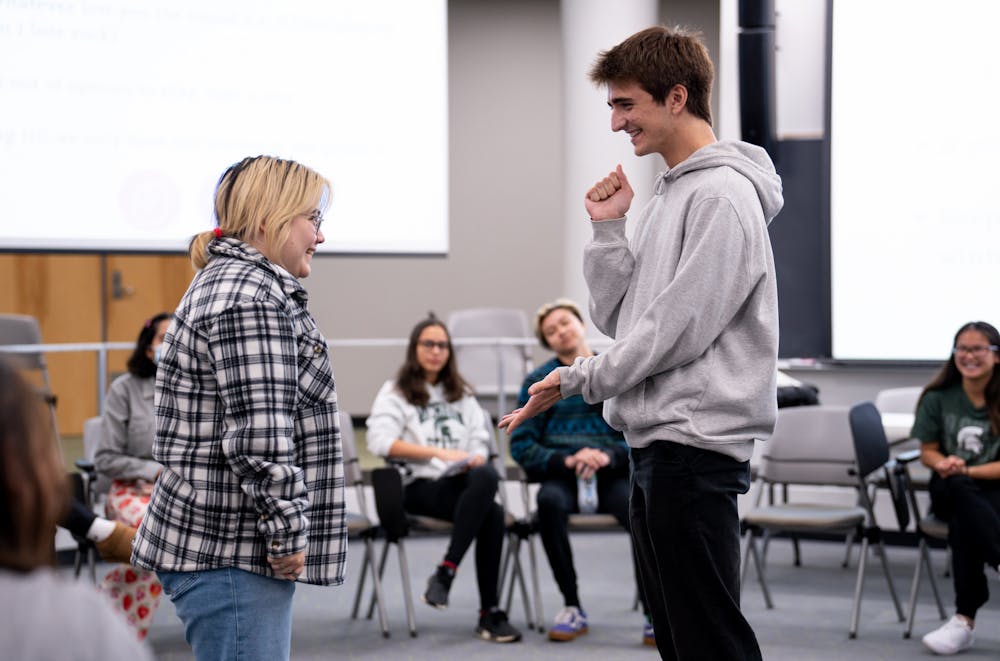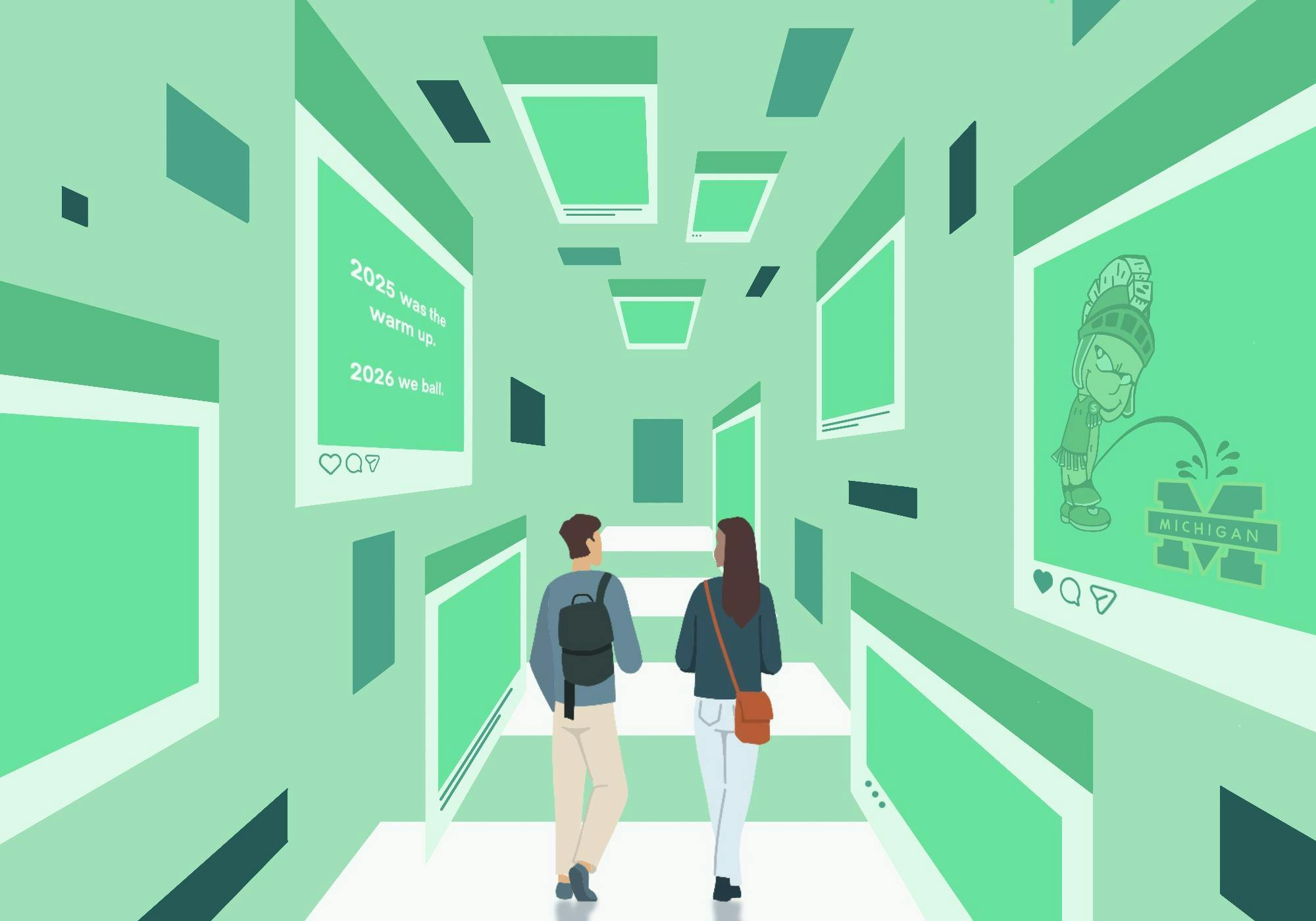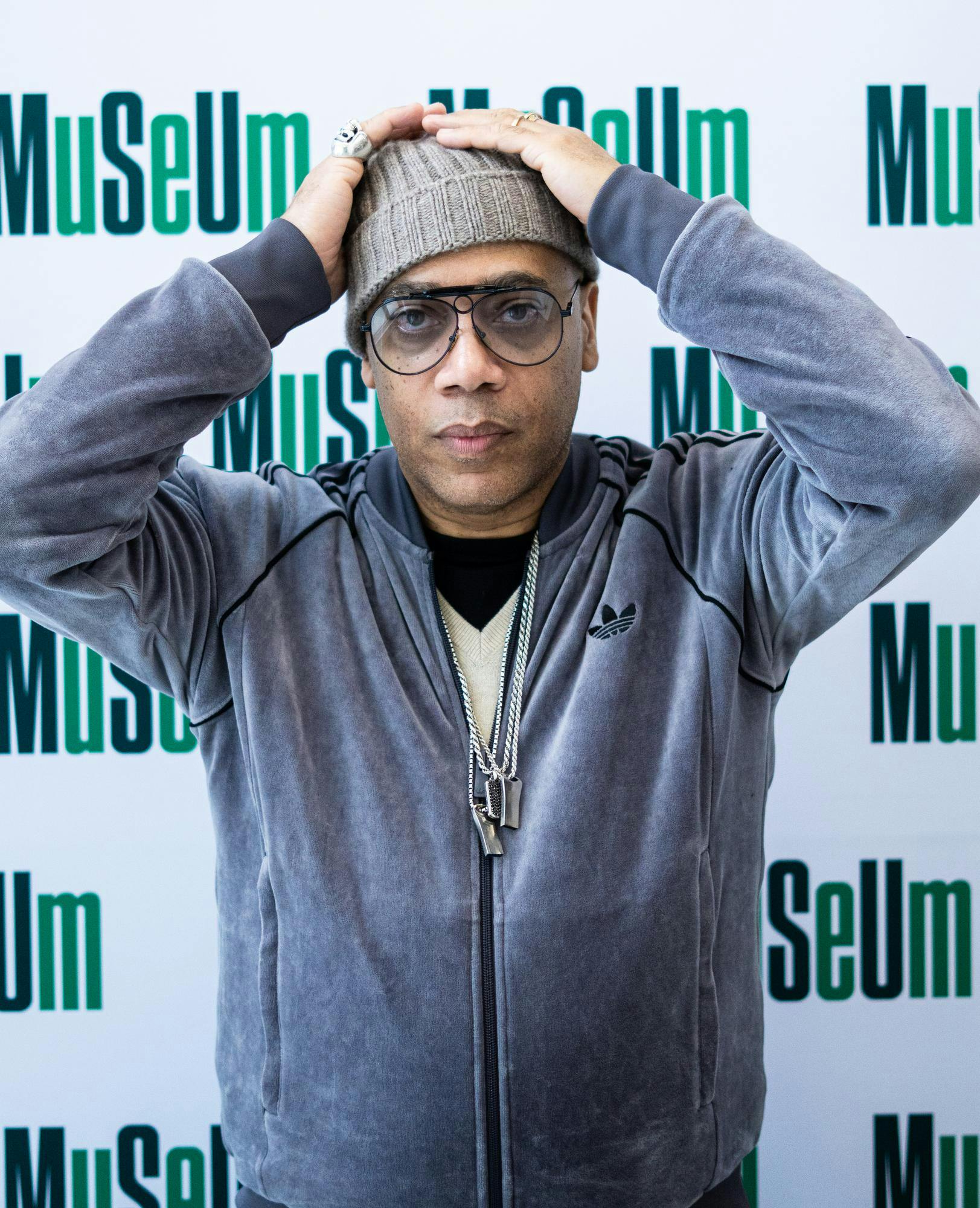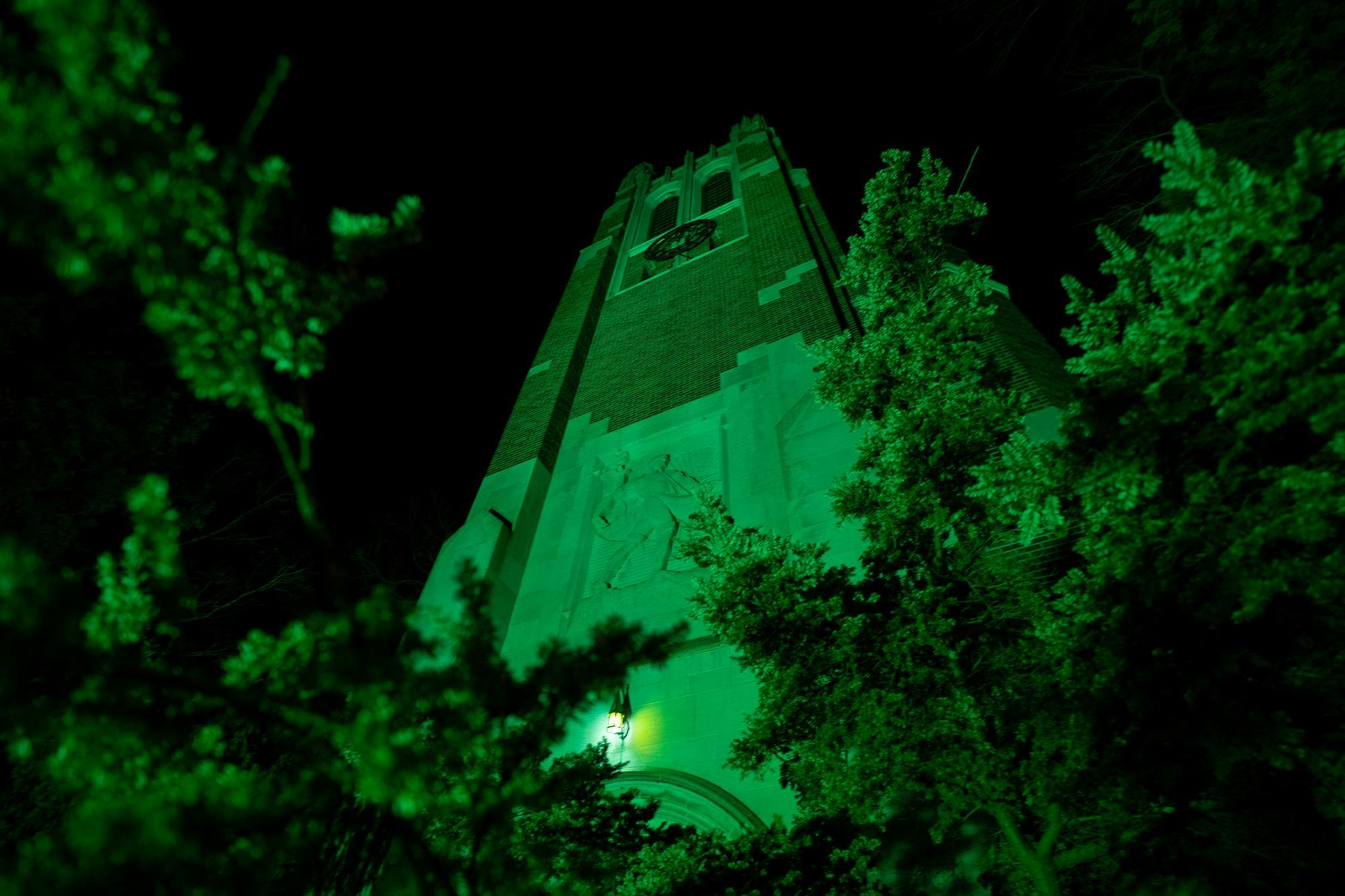Comparative cultures and politics sophomore Linus Kaechele found himself bored and stuck in his dorm with nothing to do, so he decided to follow the advice of his resident assistant and go to a roundtable discussion, or RTD.
Kaechele enjoyed his first experience, so he kept going to sit and listen. In the fourth week, one of the facilitators called an intercultural aide, or ICA, told him, “We'd love it if you shared, but the fact that you're here means the most to us; your presence is more than enough.”
After hearing this, Kaechele spoke in an RTD for the first time, and it was then that he knew he wanted to keep going.
“It was so heartwarming and encouraging, and it was just such a loving thing to say,” Kaechele said. “After that I was kind of like, ‘Yeah this is something I need to stick with,’ and then I applied to be an ICA, and the rest is history.”
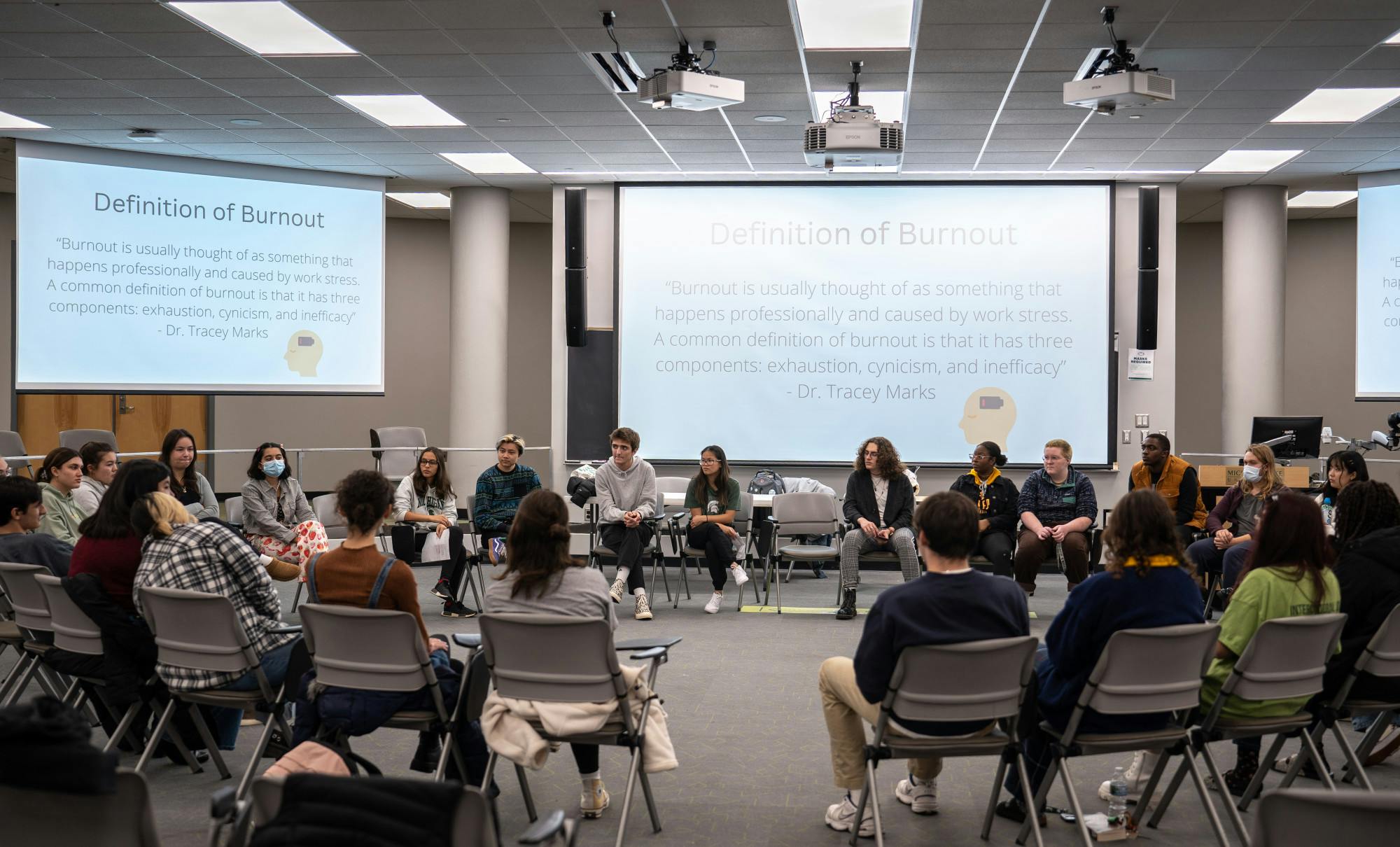
RTDs are organized by the Multi Racial Unity Living Experience, or MRULE. ICA Supervisor Chloé Grigsby said the discussions are gatherings in which students come together and have conversations about social issues, with the goal of building community and raising consciousness about what is happening in the world.
ICAs also serve as Live On aides, connecting with residents to build meaningful relationships and to make safe spaces for residents in a designated hall.
For Kaechele, the necessity for a dorm to be a safe space was always evident. He said, as a gay man, he didn’t feel valued as a Spartan, and often felt isolated as a result. However, as an ICA, he has been able to create this safe space himself.
“I went into the ICA role knowing that I didn't want to have people feel the way I did,” Kaechele said. “I kind of was like, ‘I just need to apply to this role as a way of hoping that I can be visible for other … (LGBTQ+) freshmen, or really just anyone.’”
Marketing junior Martin Lomax had a similar experience when he arrived on campus. Lomax said there was not much diversity where he lived in North Neighborhood, so he struggled to find friends and community.
“That definitely affected me,” Lomax said. “My whole first semester on campus, I really struggled getting out and finding community … I really felt like that because I was always trying to find things to do, but I always felt like I was missing something. I always felt like I was not in the right spaces, and I wasn't learning about the right things that I was interested in.”
Lomax decided to reach out to university resources for help, and that’s when he heard about the ICA program. He was able to discuss his experiences as a Black man while also learning about others.
“I saw that there was really a community that was not necessarily interested in telling you what their beliefs are, but really gathering a census of what everyone’s … perspective is on the world,” Lomax said. “Understanding how we can grow together and develop a society where everybody feels like they are not only welcome, but they belong.”
As ICAs, Kaechele and Lomax try to form connections with people on their floors. This includes helping students find useful resources, knocking on doors, going to the dining halls together and the simple act of remembering names.
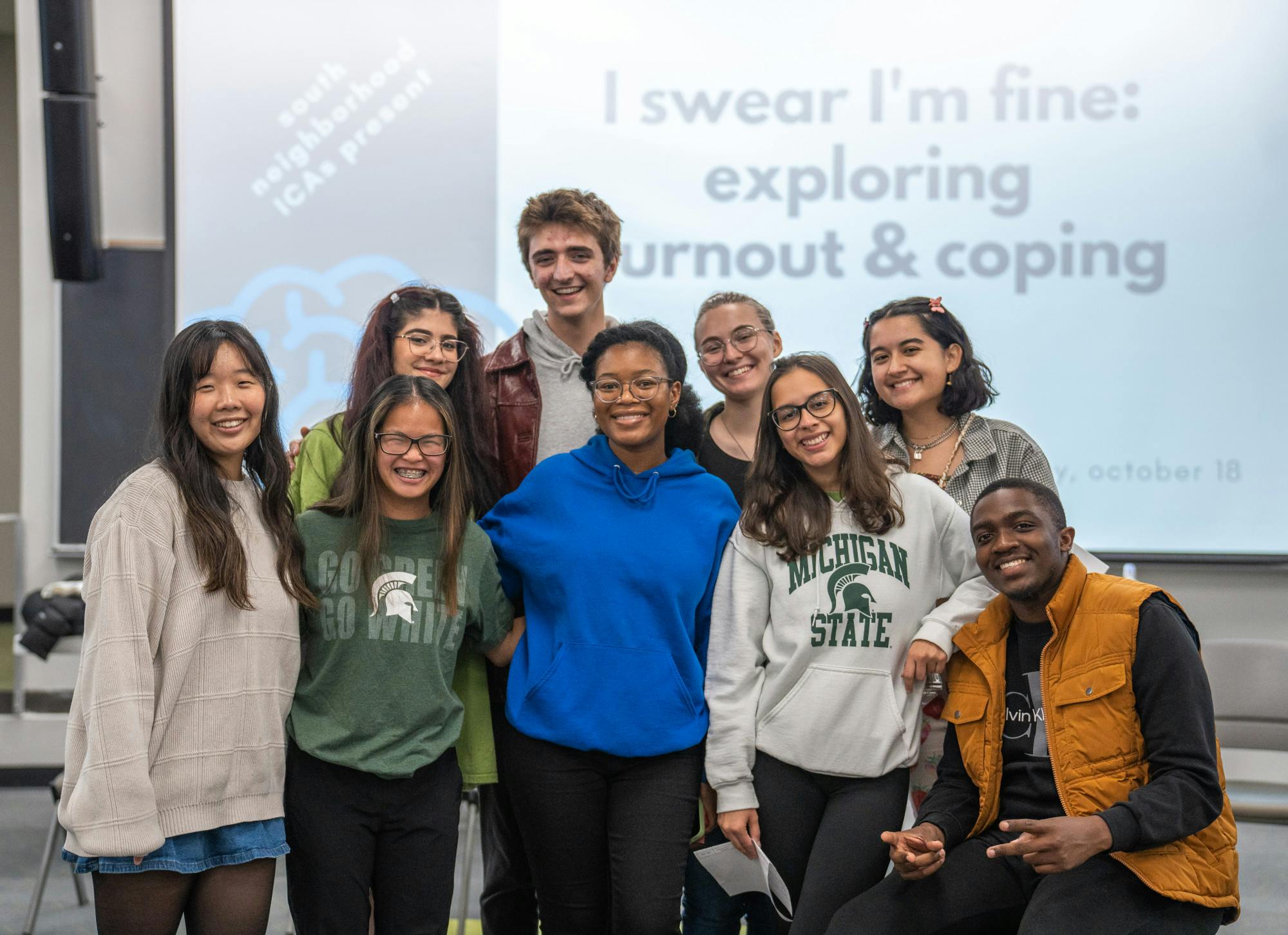
The intercultural aides pose at the Wonders Hall Kiva before facilitating their weekly roundtable discussion with other MSU students on Oct. 18, 2022.
ICA and comparative cultures and politics junior Sujin Lee said outreach not only benefits residents, but also benefits the ICAs themselves.
“Cultivating that inclusive safe space has really translated into how I like to approach people and how I get to know people,” Lee said. “It has really been such a godsend. Getting to know people and how to make small talk in a genuine way — and not an artificial Midwestern way — has been really eye-opening and has really allowed me to make new friends and genuine connections.”
Lee also values the diversity and comfort she finds within the ICA community, though translating that into the wider campus community can be difficult. As an Asian American, Lee usually finds herself having her guard up when she’s on campus, and being at an RTD is one of the few instances where she can feel completely comfortable.
“The difference in the MRULE space is that everyone is actively trying to make it a safe space … but if I go into my hall right now, not everyone is actively trying to make that into a safe space," Lee said. "So even if I, as an individual, try waving at people, asking how people are doing, making genuine conversation … I'm only one person.”
Kaechele, Lomax and Lee all said they hope more people get involved with the program, even if they are nervous or feel like they may not fit in. Kaechele said everyone needs encouragement, and everyone can learn, no matter their background.
Support student media! Please consider donating to The State News and help fund the future of journalism.
“I really like to focus on belonging as a centering term, because I feel like a lot of times, we talk about including people or making people feel welcomed,” Lomax said. “However, you can allow somebody to be in a space, but you don't make them feel like they can be themselves within it. So, what we try to do is really center our spaces around how we can create a space where everybody feels like they belong, and they can really be themselves.”
